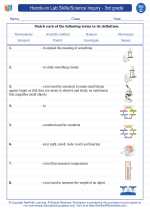Fossil Record
The fossil record is a collection of all the fossils that have been discovered on Earth. Fossils are the preserved remains or traces of ancient organisms, providing us with a glimpse into the history of life on our planet. The study of the fossil record helps scientists understand the evolution and diversity of life over millions of years.
How Fossils Form
Fossils are formed through a process called fossilization. When an organism dies, its remains can be preserved in various ways:
- Permineralization: Minerals seep into the pores of the organism's remains, creating a fossil with the same structure as the original organism.
- Compression: Organisms can be flattened and preserved in fine-grained sediments, forming a fossil impression.
- Recrystallization: The original minerals of the organism's remains can be replaced by new minerals, preserving the shape of the organism.
- Impressions and tracks: Fossils can also include impressions of organisms or their footprints, providing evidence of their existence.
Importance of the Fossil Record
The fossil record is essential for understanding the history of life on Earth. It provides evidence for the following:
- The appearance and extinction of species over time
- The development of new species from earlier ones
- The changes in Earth's environments and climates over millions of years
- The relationships between different groups of organisms
Studying the Fossil Record
Scientists use various methods to study the fossil record, including:
- Fieldwork: Paleontologists search for fossils in different rock layers, studying the geological context of the fossils.
- Comparative anatomy: By comparing the structures of fossils with those of living organisms, scientists can infer evolutionary relationships.
- Radiometric dating: This method helps determine the age of fossils by analyzing the decay of radioactive isotopes in the surrounding rocks.
- Geological analysis: Studying the layers of rock and the fossils within them provides insights into the Earth's history and the changes in life forms over time.
Key Concepts to Remember
When studying the fossil record, it's important to remember the following key concepts:
- Fossils are the preserved remains or traces of ancient organisms.
- Fossils provide evidence of evolutionary changes and the history of life on Earth.
- Different methods, such as radiometric dating and comparative anatomy, are used to study the fossil record.
- The fossil record helps scientists understand the relationships between different species and the changes in Earth's environments over time.
By understanding the fossil record, we gain valuable insights into the past and the processes that have shaped life on our planet.
.◂Science Worksheets and Study Guides Third Grade. Hands-on Lab Skills/Science Inquiry - 3rd grade
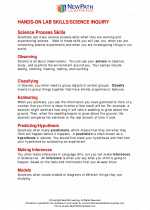
 Worksheet/Answer key
Worksheet/Answer key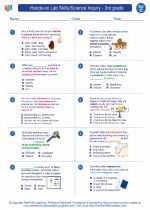
 Worksheet/Answer key
Worksheet/Answer key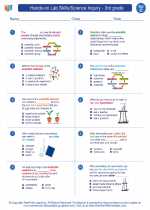
 Worksheet/Answer key
Worksheet/Answer key
 Worksheet/Answer key
Worksheet/Answer key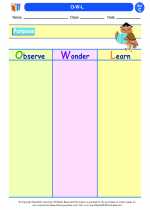
 Vocabulary/Answer key
Vocabulary/Answer key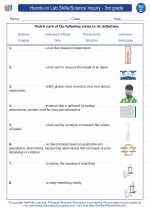
 Vocabulary/Answer key
Vocabulary/Answer key